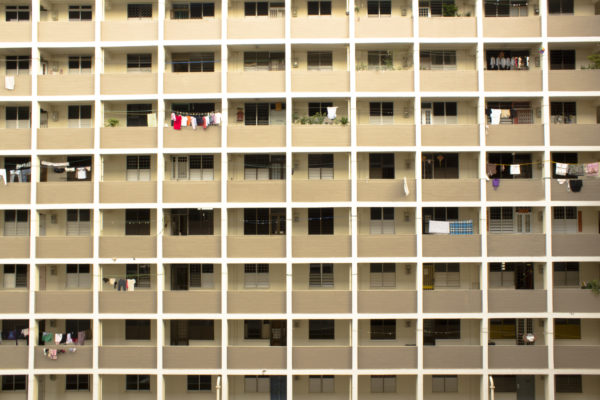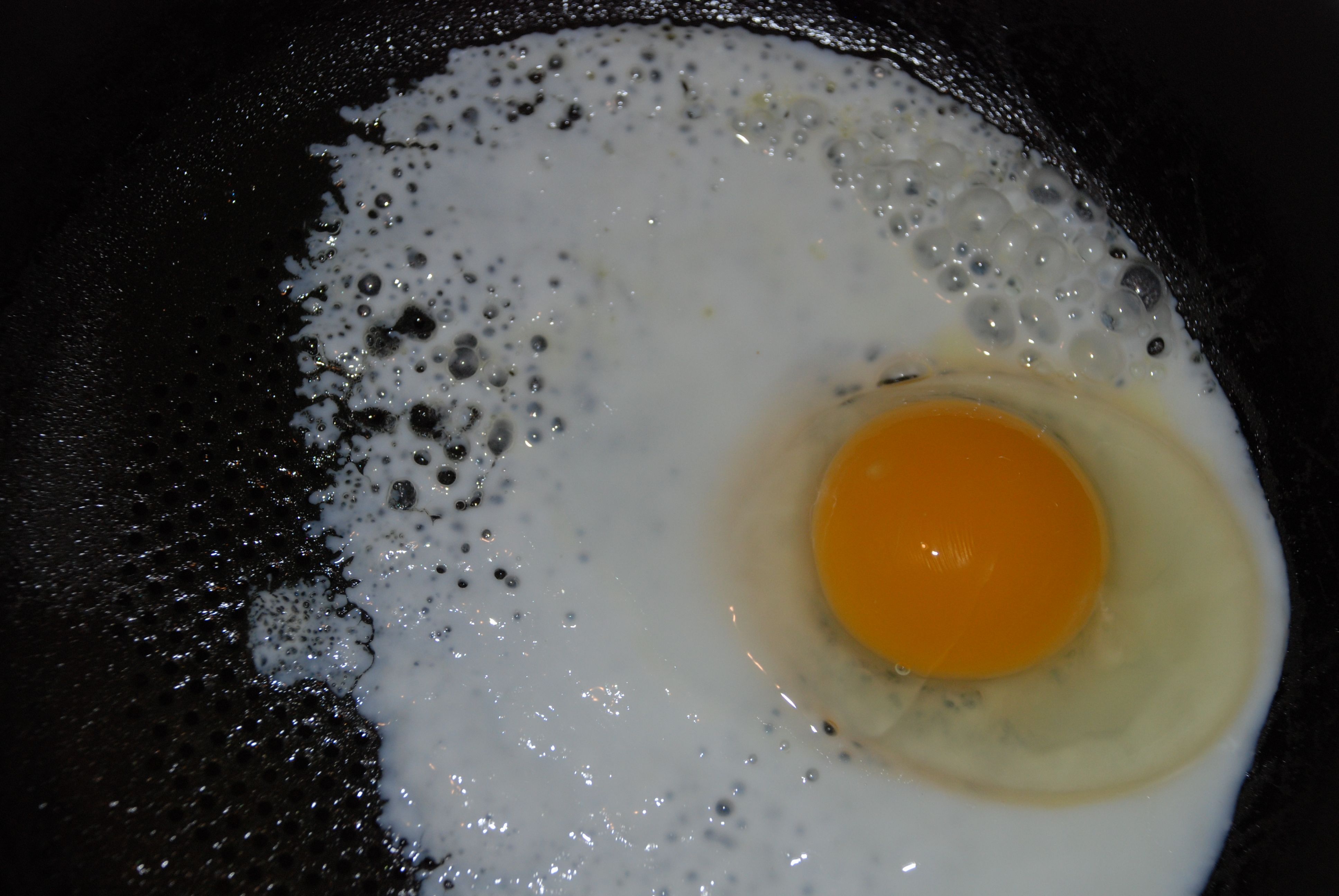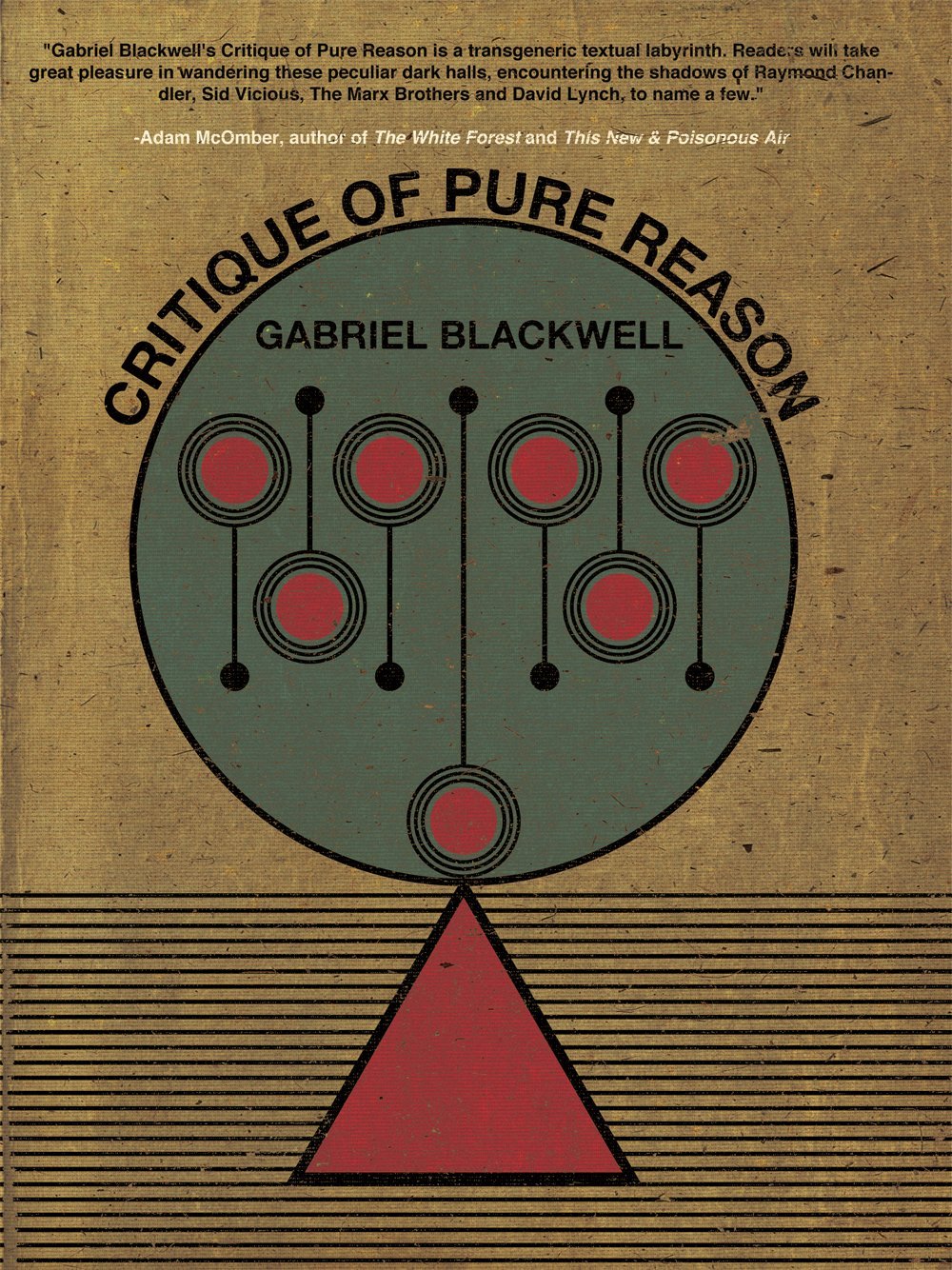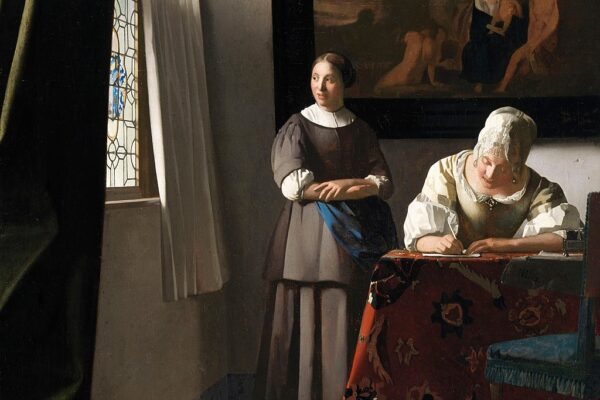By Meiko Ko
When I opened my eyes I was in a car and a man was speaking to me. At first he looked like my father, but was like a stranger too, so I asked him who he was. He said it didn’t matter. It didn’t because I was in a dream and he was just a person in my dream. A person in a dream obeys no laws and is a question mark assembled from reality. A dream is only vapor once we wake and the world changes after that. I was sleeping, he said, somewhere in that waking world. The car was traveling on the expressway and soon, the man exited to the local roads. The equatorial sun was shining brightly and planted along these roads were rain trees, stately, their crowns a wealth of leaves. This was a city in Southeast Asia. It was also a quiet Thursday. Ahead, when the red light turned green, the man drove into the car park of a housing estate.
Behind us the barrier pole lowered and the man parked the Suzuki hatchback into a bay. He shut the engine, and for a while we sat in. His arms were tanned, the skin showing age but the meat still eager, and he stretched them on the steering wheel. On his wrist glittered the silver of an Omega watch. Every now and then he’d check the time, as though anticipating a meeting. My Seiko watch showed 4 p.m. I’d like to go home. Tomorrow morning homework was due and answers must be turned in for the quadratic sums, a pressure on my mind. I looked closer at the man who was my father, sitting beside me: He had the conventional black hair, the straight fringe guarding his forehead, and a nose he imagined taller than others’. He was tense too, as though a wind was speeding through his body and any moment someone might break the car window to demand a debt. He made me tense, I wasn’t sure where all these were heading. At 8 a.m. tomorrow the quadratic equations were due and if I had no answers, Mr. Lye the maths teacher didn’t hesitate with the cane. School was run like a mini-state and all rules in the classrooms were like laws; dreaming was banned and fear the method of rule, so that nothing crossed Mr. Lye anymore.
My quadratic equations were in my purple schoolbag by my feet. I bent to pick it up, but the man said, in a voice even despite his tenseness, “Don’t worry about that. We’ll be going someplace soon. You can do your homework there.” Then from his pocket he pulled out a cellphone, a Samsung. He thumbed the screen till it grew very hot in the car, the air staling, almost unbreathable, then he announced abruptly that it was time, we should go. We got off. The equatorial sun was known to be a terrible curse to many and temperatures outside were differentiated only by a slight breeze. In the car park, vehicles were few, and no one was around.
In the distance there was a playground, a square space of sand with a stone pelican for children to climb into its semicircular beak. A girl was on the swing, this being a Thursday she was in her school uniform, like me. The man and I walked on a footpath lined with ixora shrubs, and we reached Block 7. It was a traditional slab block, stretching from one end to another like the staff of a music sheet, about a thousand meters long, the parapets painted in the color of peach.
The man went into the block’s ground deck. Passing the cement pillars and empty spaces, his pace regular. I was a few feet behind him, in my Bata shoes. I was watching his back, it was nondescript, a man in an indigo shirt and jeans fastened by a leather belt. I was wearing my school pinafore of juniper green and carrying my schoolbag. Passing the mailboxes we reached the lift lobby, tiled in maroon, and waited. One came, we got in, the man pressed the button for “17.” He leaned back on the plywood wall and crossed his arms and legs. Above the steel door a panel of electronic numbers skipped by an arrow marking “Up.” From the ceiling some tubes showered fluorescence on the man’s large nose and I asked him, what were we doing here, were were we going.
He said, “Soon, you’re going to watch a live show. I’m one of the actors. There’s someone I want you to meet. After that, your entire life will change, and from now on you’ll understand how to see yourself.”
“I never knew you acted.”
“That’s only because you don’t know me well enough.”
“Yes, you’ve always been clandestine, one to hoard your thoughts.”
“This is true, in reality. But since this is your dream, many things are not under my control.”
“Is that so? You seem very much yourself, lifelike and beyond control, with a will of your own.”
“I suppose I’m not someone who changes very much. Not for another’s dreams, nor in them.”
“But you have the same eyes and nose like my father’s.”
“I am your father, in looks. Chances are also high that I’m a stranger, inside.”
“Who are you really then?”
“I don’t know. Most likely a very black space.”
Then, the lift doors slid open and I went with the man out of the car. A corridor ran through the landing, and he chose the one on the right. The corridor was very long and opened to the sun on one side, on the other a succession of flats ran side by side. Each flat had a metal gate and a wooden door. Down the corridor we went, along this peaceful path strewn with potted plants and bicycles and shoe racks. Then, the man reached a flat with two red lanterns hanging at the entrance. He swung back the gate and balling his fist, pounded on the wooden door. The knocking was loud and hollow, but no one came. But the man would not give up and was insistent, as if coercing the wooden door he kept pounding, in his inflamed state wrenching the doorknob, which gave way. The door swayed back and sunlight streamed into the flat. Inside, the place was quiet. The living room was a rectangle space, gloomy, with a doorway at the end leading to a kitchen. Next to it was an altar cabinet. Sitting on the altar was a Chinese Mother Goddess, a patron of seafarers, fishermen. And beside her, a vase with an offering of chrysanthemums.
No one was in the living room; no persons come to watch the promised show. In all appearances the flat was somebody’s home, simply furnished, its things old, untrendy, but practical. On my right by the wall was a sofa, in front of it a Courts coffee table, and across these, two bedrooms. On each hung a curtain door, patterns of hibiscus flowering like the mouth of trumpets on the cloth. They were shut. No indication of anyone behind them in the bedrooms. Then the man turned about to see me and solemnly, as though declaring, he said, “Go to the kitchen and do your homework there, for now.”
We were at the threshold of the entrance and I removed my canvas shoes, my feet in white socks. Through the thin cotton I could feel the cool of marble flooring on my soles, as I made my way to the kitchen. Just behind the doorway was a round table with a surface of tin. I pulled out a chair. Where I sat I could see the whole of the living room, the door to the flat now shut and gloom had once more returned to soak the space. The man, also my father, watched me with his snail brown eyes, as I took out from my schoolbag the quadratic equations and a pencil, getting ready to do the sums. Like a classic father he nodded in approval. But thereafter his face began to contort, the features swelling slightly, like bruises, the nose previously average-looking now seeming to protrude, like a vulture’s. No longer was it a face belonging to my father’s. He arched his eyebrows and smiling in a vague way, said, “The show will begin soon. When it does, you may watch.” Then he went behind the curtain door into one of the rooms.
*
When the man appeared again he was with a woman. She was someone I’d never met. My Seiko watch read 5.30 p.m. and the sums had not progressed, one of the equations were in disguise and I could not see the answer. Here, undo these brackets, and move five left of the equal sign. Tell me what was the velocity of the car when it encountered the crash. Who was the one abusing speed, A or B, given the area of damage. But I was still dealing with the placement of three when the man came out of the room. He was the same father and man, but now had the look of the crazed, a clown in an arcane performance wearing only his jeans and braided belt. He had no shirt on him, his torso bare and tanned and bony, and he carried his nakedness as though it was a proud exhibition, as though the rules of clothing in the flat had broken down – clothes were never invented to cover shame. I no longer seemed to exist too in this flat, my presence deleted the car ride, the parking lot, the blocks and the long walk through the corridor – none of these had happened, and the man had not brought me here. He was not aware of me as a person, only a thing with snail brown eyes sitting in the kitchen of a stranger’s flat, doing sums and watching a live show. With the man the actor who was my father in name only and in looks.
He went to the sofa and sat down, his legs splayed wide and comfortable, as though he’d lived a lifetime in this flat. Then from his pocket he pulled out his cellphone, and thumbed through it again. Some minutes later he called out in a sharp voice, “You can come out now.” One of the curtain doors of the room lifted and a woman emerged – a short, silent thing with a face plain as dough and common to these parts of Southeast Asia. A sheen of oil coated her skin rough as a tangerine peel and like a mannequin, she betrayed no emotions. She was dressed simply, in blue slacks and a t-shirt, her shoulder-length hair the standard black falling against the white cotton. Like an actress commanded to do an audition she came out of the room and stood before the man. He sat there, watching her for a while. Then he said, “Take off your t-shirt.”
I watched these two persons in the bluish gloom of the living room with my 2B pencil in hand as though I was watching T.V. There was a T.V. set next to the door, but it was off, the thirty-inch screen a bright blank reflecting the semi-naked man and the woman before him. She complied. She crossed her arms and lifted the hem of her t-shirt and the act revealed her beautiful body, the firm bones of ribcage built to bear vices, infirmities. Her breasts were weighty and hanging like two punch bags of guilt, conscious of their burdens as the gateway to lust, pleasure. She took off her t-shirt and held it by her lap, unconscious of the man.
Again he watched her, but the color of his eyes were changing, turning transparent, and he said, if only to hear his own voice,“Since this is a stripping game, I want you to make a guess of what I’m thinking.”
The woman replied, in a voice unusually clear, “I think you’re celebrating something.”
“What makes you say that?”
“You brought a little girl, sitting there in the kitchen. It must be a special day.”
“Yes it is. It’s one of those days we could commit to memory, since dreams hardly repeat themselves. And indeed, it’s her birthday tomorrow, so I brought her here, to learn something.”
“I didn’t know you’re a teacher,” she said.
“Well, I’m her father, and I’m required to teach. I was hoping you could show her a thing or two, because I want her obedience.”
The woman turned to look at me, her small head shrouded with gloom. She looked at me fully and in a way a stranger might, her eyes aloof but seemed to be saying, “Good luck to you. Everything depends on how you think about this now. If we meet again, then I’ll smile and say hello.” She turned her head back and met the man in the face again, and said,“She’s only doing her homework.”
“Yes and rightly so. Now she’ll have to watch you take off your slacks. Because you’ve got it wrong. She wasn’t what I was thinking about.”
The game went on and the woman lowered her linen slacks, her fingers hooking the waistband and bending she drew the pair down till they dropped to her ankles. And the man became alert and he leaned forward, his elbows on his knees and in his hand the cellphone, the nipples on his chest black as blackcurrants rising to keep up with his wild thoughts for the woman now in her panty and bra. His face, which had begun to swell ever since he entered the flat, was now expanding, as though from a nobody he had become a somebody in the presence of the lone, singular woman, who neither rejected or defended herself for this thievery of meat, and in his eagerness his lips began bloating like an inflamed wound at the mercy of lust, greed. He aimed the cellphone’s camera at the woman for a full portrait, clicked the screen, and it released a flash in the gloom. Then he stood up, adjusted his height to where the Samsung matched the woman’s left breast, and with his free hand pulled down her bra strap for a single breast to peek out from behind the spandex. It was an ample breast, made to suckle, to give solace, and shaped like a teardrop. It did not matter to the man that I was there, in the kitchen. Like an actor absorbed in performance he felt no shame of me, a daughter in her dreams dreaming that her father was a first-rate boudoir photographer of women’s bodies. He murmured, as he clicked, “Sex is a part of true art.” “The nipple could do better, harden up.” “Eroticism is a branch of philosophy.” Once more, he clicked. This time crouching, like a crab, and aiming the woman’s cunt.
So the man aimed and he aimed at the pink folds of shy flesh gathered by a slit, which seemed to say much, and nothing. He aimed at the wrinkled lips never uttering a sound, no, not a peep, no human word of comprehension to understand this muteness but for a nagging chamber of loneliness, ever-present in me, when I’d brought a mirror to the bathroom two Thursdays ago to reflect my own labia back to me, wondering what it might say if it could speak, but heard only resistance. At the recoil and reception of my fingers that was clueless what sensation to produce at their tips, “it was normal to moan,” a teenage novel wrote; as the man now applied his index finger to poke, to tease, in between her legs was an oyster, inlaid with a pearl. He clicked on the Samsung again. Again, and again, from assorted positions, angles, and about twenty shots later, the man suddenly flicked his head up at me and his eyes, before a transparent gaze, now had a pinkish gleam, and seeming to say without speaking, “Are you watching? You must watch me, to learn. You must learn, to understand the value of your own cunt.” Frightened, I lowered my head. The quadratic equations in 2B pencil marks appearing again in my vision.
Some pencil lead had smeared onto my fingers. I got off the chair away from the scene of cellphone photography and headed to the back of the kitchen, where there was a toilet room. I went in and shut the accordion doors, and sat down on the toilet seat. What was going on. Was this a dream? Why was I here watching this vivid show, starring the man called my father performing the role of the shutterbug, shooting women’s bodies? Was he a criminal now? A pervert gone crazy over women’s cunts? Where was Mother? I’d not seen her in this dream but were I to tell her when I wake, would she believe me, that I had dreamt this perverted dream. And who was this woman, who understood that I’d only wanted to go home and do my sums? Tomorrow they were due and so was my birthday, I’d like to have a happy one. Then, if this was my dream and all was in my control, and if my sleeping was causing her pain through the absurdity of my dream, it was time I woke, time to stop father from extorting any more shame from the woman and me with his bantam acts of the porn star. Rapidly I blinked, then shut my eyes. But when I opened them again I saw the same toilet room, the same ceramic tiles and zinc door – the nightmare was still on.
I came out of the toilet. Beside it was a washbasin and I twisted the faucet for the rush of water to wash my face – water had not felt this good in a long while. But no matter how much I scooped and doused the precious liquid onto my face the dream didn’t seem to end, I was still in this flat, in this reality, without the promise of the mother to soothe me and say, “Hush, it was only a bad dream.” “Yes, your father is a normal man, and we’ve always been the happy family, the most united in the neighborhood.” Life made no promises, much less dreams. A plastic rack was stuck on the wall, and I took from it a towel to wipe my face. Then I looked at my reflection in the mirror above the washbasin. It wasn’t a face I understand too, no, not the snail brown eyes or nose or mouth, which must only come from Father fifteen years ago about this same day. I went back to the table by the doorway and sat down. But there was no one in the living room now, only the sofa, the T.V., the curtain doors, the pall of gloom overlaying all, with no trace of the man stripping her, no evidence of his crime. In all appearances this was just someone’s home, an ordinary flat in a public housing estate. I thought, should I leave now? Take a bus home? Just as I was setting the equations into my schoolbag the curtain door lifted, and the man came out of the room. He was wearing his shirt now, was buttoning it and inserting the tails into his jeans.
“Time to go,” he said. “Are you done with the homework?”
“Yes,” I replied.
We put on our shoes at the threshold of the entrance and the man opened the metal gate. Once again we were on the corridor, and he was shutting the door. I took a final glimpse of the flat, like it was a hotel room I was leaving forever, and saw again the Chinese Mother Goddess sitting impassive on the altar cabinet. I whispered to her, “Please don’t bring me here again.” The door was shut, the man and I went back the way we came. My Seiko watch read 6.30 p.m. The sun was now calm and the temperature had gone cool, it was time for dinner soon. Food being the last order of the day in this city the flats we passed seemed to stir to life, some doors to the flats were open and the scent of cooking filled the corridor space. A group of children had come back to eat. A company man was unlocking his flat. The man and I went to the lift and took it down to the ground floor. We went back to the car park and got into the Suzuki hatchback.
The car was traveling on the expressway again, heading west. The man was driving, he had turned on the radio to a classical FM station, a symphony was surrounding the interior of the car and the woodwinds were playing with a family of flutes. He seemed relaxed now, no longer tense, the meeting was over and successful, and in every way seemed like the standard father who had raised me, put food in my palms. He was tapping his fingers on the steering wheel to the music, his Omega watch still glittering in gold. He didn’t seem to mind too, that a Toyota in front of us was road hogging, driving as though it was Sunday, at 50 km/hour. Suddenly he said, his voice even and casual,
“Did you enjoy the performance just now?”
I didn’t answer. I only stared out of the car window, watching the headlights of the oncoming traffic on the other side of the expressway. Beyond, there was a sea, and there, at the boundary of city, was a Ferris Wheel, rotating slowly against the backdrop of the skies, now graying into night.
“Maybe one day you will,” he said. “Maybe one day.”
Meiko Ko was born in Singapore and came to the United States for an education when she was young. She writes Chinese experimental fiction and is active at the Asian American Writers’ Workshop. Her work has been published in the Blue Lyra Review, Hayden’s Ferry Review, AAWW, The Margins, and is forthcoming in The Literary Review.




